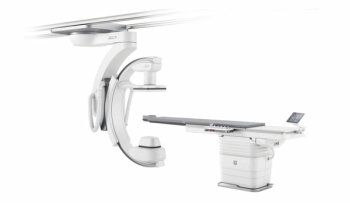
Employing intelligent robotics and enhanced low-dose image quality, the uAngio AVIVA X-ray system also offers hands-free image review and movement.

Employing intelligent robotics and enhanced low-dose image quality, the uAngio AVIVA X-ray system also offers hands-free image review and movement.
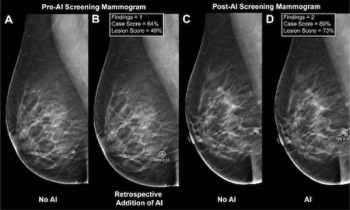
The use of AI software for digital breast tomosynthesis (DBT) facilitated a higher cancer detection rate and over double the PPV for exams with abnormal interpretation, according to a newly published study.
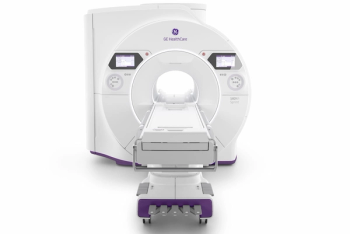
The combination of high-performance gradient technology and AI tools with the Signa Sprint MRI reportedly facilitate enhanced MRI workflow efficiencies in cardiac and oncology imaging.

Is there an achievable balance between leisurely relaxation and cramming must-do sightseeing into a short amount of time?

Catch up on the top radiology content of the past week.
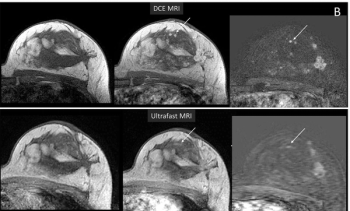
New research findings suggest that image quality and lesion conspicuity are significantly lower with ultrafast breast MRI in comparison to standard dynamic contrast-enhanced breast MRI.
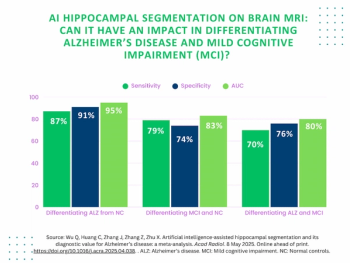
While AI-enabled hippocampal segmentation on MRI offered a 95 percent AUC for differentiating between Alzheimer’s disease and normal controls in a 27-study meta-analysis, it offered significantly lower sensitivity and specificity in differentiating mild cognitive impairment.

For DBT breast cancer screening, 47 percent of radiologist-only flagged false positives involved mass presentations whereas 40 percent of AI-only flagged false positive cases involved benign calcifications, according to research presented at the recent American Roentgen Ray Society (ARRS) conference.
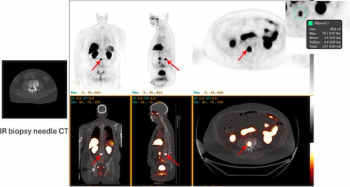
For patients with recurrent or metastatic prostate cancer, new research findings showed no significant difference in the sensitivity of 18F-piflufolastat PET/CT between patients on concurrent hormone therapy and those without hormone therapy.
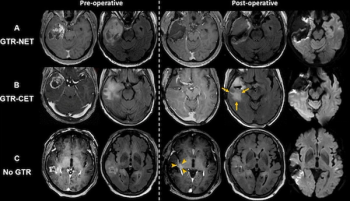
Irrespective of age or O6-methylguanine-DNA methyltransferase (MGMT) promoter methylation status, gross total resection of IDH wild-type glioblastomas was associated with a median overall survival of 32.6 months, according to new MRI research.
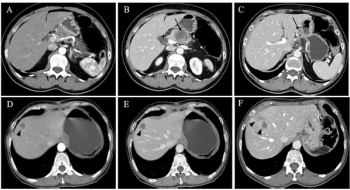
In comparison to American Joint Committee on Cancer (AJCC) TNM staging, an emerging CT-based scoring system for assessing early recurrence of pancreatic ductal adenocarcinoma demonstrated over a 22 percent higher AUC in testing and external validation cohorts in a new study.
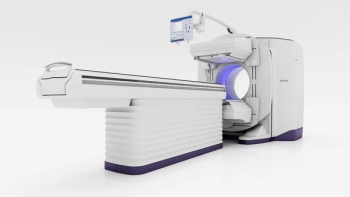
The combination of the Aurora SPECT/CT system with AI-enabled Clarify DL image reconstruction reportedly offers the potential of enhanced image quality and streamlined workflows in nuclear medicine.

In a second part of a new podcast episode on recently published research on projected radiation-induced cancers from computed tomography (CT) scans, Mahadevappa Mahesh, MS, Ph.D., and Joseph Cavallo, M.D., offer current perspectives on cardiac CT dosing, AI advances and the importance of teamwork in ensuring appropriate dosing for CT.
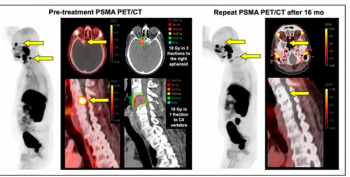
While PSMA PET/CT revealed an 87 percent local remission rate after metastasis-directed radiotherapy for oligometastatic prostate cancer in a new study, researchers also found that 80 percent of patients had biochemical progression at a median 32-month follow-up.

With summer right around the corner, this author offers key principles for optimizing one’s time off.

Catch up on the top radiology content of the past week.
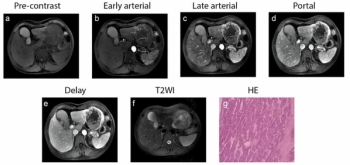
New research revealed that Hispanic Americans with evidence of hepatic steatosis on MRI but no formal diagnosis of MASLD had over a fourfold higher risk of developing hepatocellular carcinoma in comparison to those who had a formal diagnosis of MASLD.
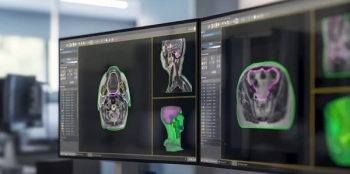
Capable of segmenting over 37 organs and structures in the head, neck and pelvis, the MR Contour DL software is currently being showcased at the European Society for Radiotherapy and Oncology (ESTRO) conference.

In a new podcast, Mahadevappa Mahesh, MS, Ph.D., and Joseph Cavallo, M.D., share their perspectives on recently published research looking at projections for future radiation-induced cancers from computed tomography (CT) scans.
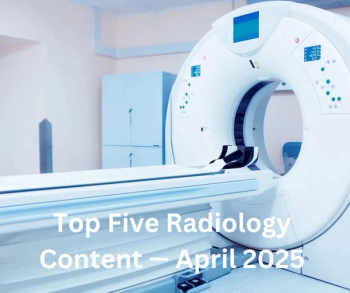
Catch up on the most-well viewed radiology content in April 2025.
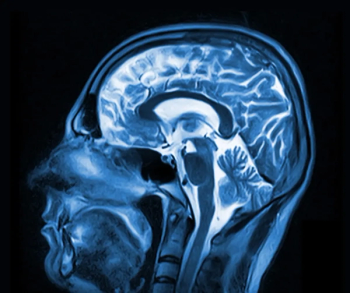
Emerging MRI research suggests that brain age is nearly two years older than chronological age for people with metabolic dysfunction-associated steatotic liver disease (MASLD) and increased alcohol intake.

Offering automated conversion of computed tomography angiography (CTA) into 3D images, Viz 3D CTA reportedly facilitates real-time insights into complex neurovascular anatomy.
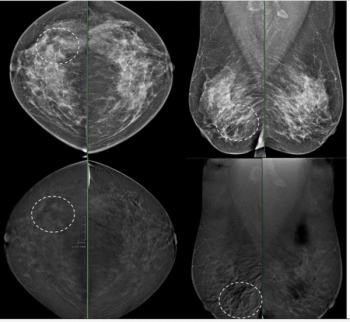
In comparison to minimal or mild background parenchymal enhancement on contrast-enhanced mammography (CEM), researchers found that moderate or marked BPE was associated with a 12 percent lower AUC for breast cancer detection.

Catch up on the most well-viewed video interviews from Diagnostic Imaging in April 2025.
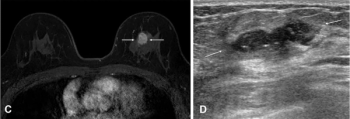
Preoperative breast MRI had no impact upon recurrence-free survival and overall survival for women with HER-2 positive, hormone receptor-negative breast cancer, according to a multivariable analysis of a new study involving nearly 1,100 women.
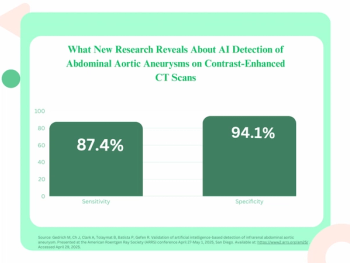
The AI software Viz AAA offered a sensitivity of 87.5 percent in detecting abdominal aortic aneurysms on contrast-enhanced CT, according to new retrospective research presented at the American Roentgen Ray Society (ARRS) conference.

In a recent interview, Wayne Brisbane, M.D., discussed new research, presented at the American Urological Association (AUA) conference, which revealed a 15 percent higher AUC for an emerging AI software in detecting seminal vesicle invasion (SVI) in comparison to prostate MRI alone.
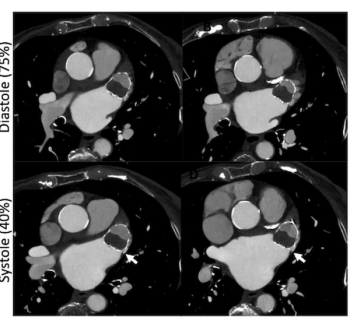
Cardiac CT angiography may provide insights on common post-op complications of left atrial appendage closure, ranging from peri-device leaks to device-related thrombus, according to research presented at the American Roentgen Ray Society (ARRS) conference.

There is something to be said for finding the sweet spot between hardwired ambition and consistent success under the radar in radiology.

Catch up on the top radiology content of the past week.